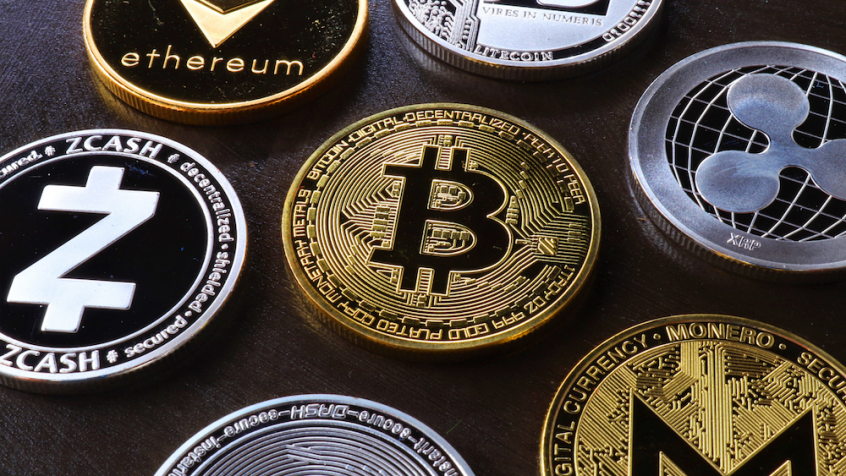One of the big questions people ask is where they can buy cryptocurrencies.
After all, if you decide you want to buy crypto, you need to know how to go about it. For beginners, it can make sense to start with a major centralized cryptocurrency exchange. However, as you become more familiar with crypto, there are other ways to get crypto.
Buy Cryptocurrencies on a Major Exchange
Major centralized exchanges like Coinbase, Gemini, and Crypto.com are good places to start investing in crypto as a beginner because they’re:
- Highly liquid
- Selective about which crypto assets are available
- Often have theft and cybersecurity insurance
- Compatible with various fiat purchase methods
Let’s take a look at why these items matter to beginners just getting started with buying cryptocurrencies.
Highly Liquid
Liquidity indicates how easy it is to convert an asset into cash. With some decentralized exchanges, it can be difficult to sell your assets when you’re ready. With a liquid major exchange, you can sell and withdraw relatively easily.
These major exchanges have a high volume of buyers and sellers, making it easy to match transactions. For beginners, this makes buying crypto assets easy. And it’s easy to sell when you’re ready.
Selective Crypto Assets
Many of the major exchanges only list major crypto assets. These are assets that usually have a high trading volume. When you buy cryptocurrencies, you want to be reasonably sure you can sell them. Exchanges are the same way. Major exchanges choose to list popular crypto assets that they will be able to move. When you use a major centralized exchange, you more likely to see assets that might improve in value.
Insurance
Coinbase and Gemini, in particular, pride themselves on having insurance coverage. If someone hacks the exchange and takes crypto, the insurance can help replace those assets. Having this layer of protection can give you peace of mind for assets stored on the exchange.
However, it’s important to make the distinction between theft/cybersecurity insurance and SIPC coverage. SIPC insurance doesn’t apply to crypto assets. So, even major exchanges don’t have those assets covered. If Coinbase or Gemini fails, there’s nothing protecting you — and no guarantee you’ll recover your assets.
While you might get your assets back if an exchange gets hacked, you aren’t protected otherwise. Be careful when you buy cryptocurrencies that you don’t risk more than you can afford to lose.
Fiat Purchase
For beginners, being able to use fiat money to purchase crypto assets can be important. Major exchanges often accept U.S. dollars. You can use debit, bank transfer, and even PayPal. With decentralized exchanges or exchanges not licensed to operate in the U.S., you might not be able to use fiat money.
When making your first purchases, you can buy cryptocurrencies on the exchange. Send the crypto to your own non-custodial wallet. Then, you can use that crypto and exchange it on a decentralized exchange for more obscure crypto assets.
If you’re just dabbling and want something to speculate with, there’s no reason to go beyond a centralized major exchange.
Downsides to Buying Cryptocurrencies on Major Exchanges
Even though it’s easy to buy cryptocurrencies with major centralized exchanges, there are downsides. This is especially true if you keep your crypto on the exchange.
First of all, major exchanges exist to make money. You often pay fees higher than what you’d pay with a decentralized exchange. A decentralized exchange wants to make money, too, but a lot of the time the mechanism used is different, and the fees can be smaller.
For die-hards, the whole point of crypto and blockchain is decentralization. So it doesn’t make sense to use a centralized exchange. If you’re interested in building a decentralized economy, using a major centralized exchange can make sense as an entry point. But you probably want to move into other spaces quickly.
Finally, if you keep your crypto assets on an exchange, you don’t have full control over them. Most of my crypto assets are in cold storage, in a hardware wallet that isn’t connected to the internet. I have assets on an exchange for experiments and trading purposes, but once I have a certain dollar value, I move the assets off the exchange.
If the exchange fails, you can use your crypto. If the exchange decides to confiscate your crypto, you don’t have recourse.
Bottom Line
Consider starting with a major centralized exchange if you want to buy cryptocurrencies. However, as you build your crypto portfolio, look for other places to keep the bulk of your assets. Understand the advantages and disadvantages, and make sure you periodically move your assets to a crypto wallet you control.

